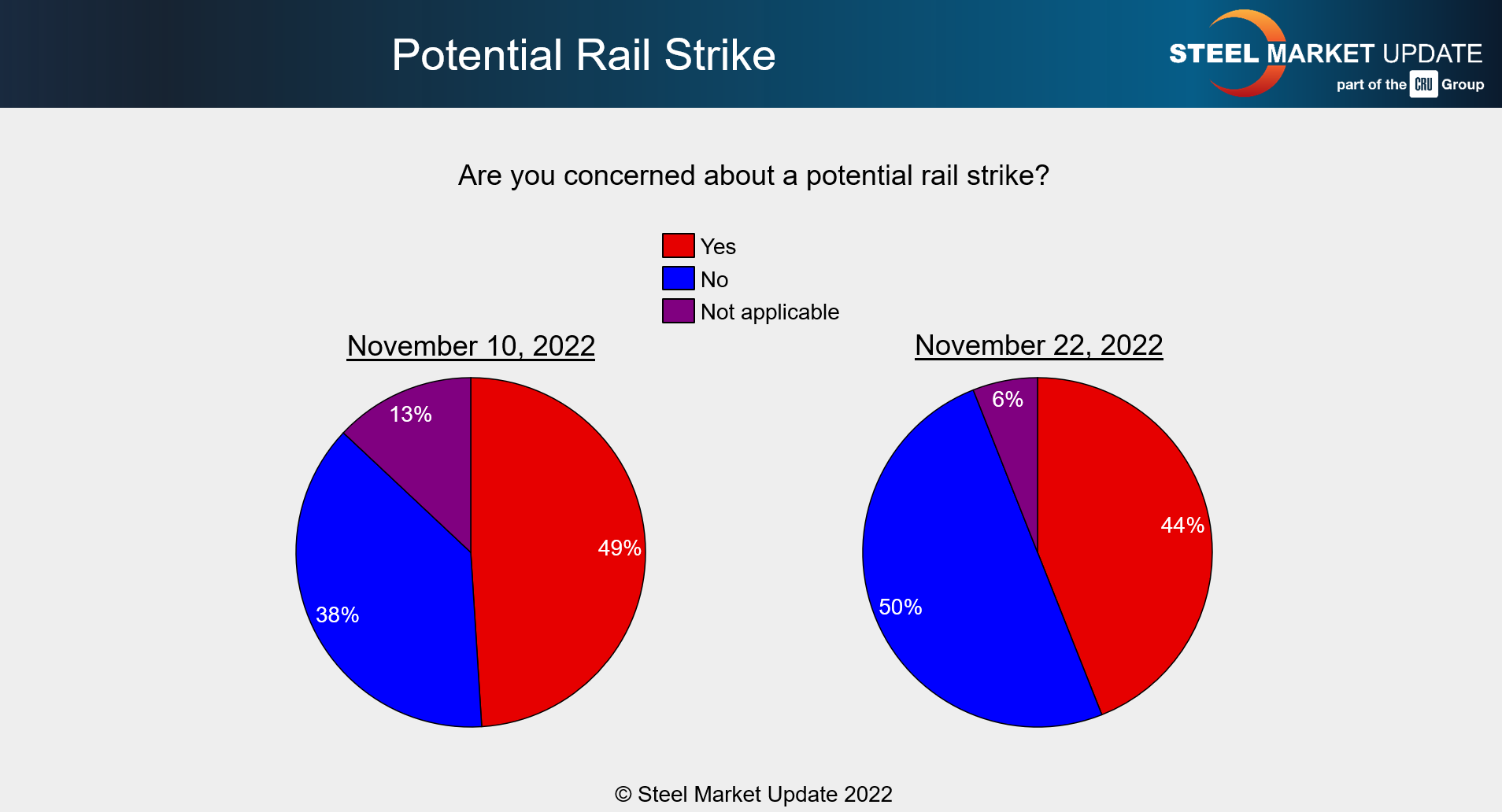Logistics

November 22, 2022
Rail Labor Negotiations Remain Open, Strike Still Possible
Written by Becca Moczygemba
The potential for a rail strike still remains after the results of union votes were announced on Nov. 21.
While members of the SMART yardmasters and Brotherhood of Locomotive Engineers and Trainmen (BLET) voted to accept their proposed labor deals, members of the International Association of Sheet Metal, Air, Rail, and Transportation Workers – Transportation Division (SMART-TD) voted to reject their proposed labor contract.
BLET and SMART-TD issued a joint statement that noted, “Under the provisions of the Railway Labor Act, the labor law for workers employed by railroads and airlines, contracts don’t generally expire, they become amendable. After the unions filed their Section 6 notices with the NCCC in November 2019, talks began in January 2020.”
In the same press release, SMART-TD president Jeremy Ferguson expressed a desire to reach a settlement through negotiations and avoid a strike. “A settlement would be in the best interest of the workers, the railroads, shippers, and the American people,” stated Ferguson.
A rail strike could create a potentially difficult situation for the steel industry. As everyone is keeping a watchful eye on the drought and river situation, another hurdle in transportation options would put a kink in the supply chain.
“We’re watching rail negotiations closely, but I don’t think Congress will allow the supply chain to shut down. What’s happening now is like what we’ve seen with the longshoremen on the West Coast. Companies are reporting record profits, so we expected the negotiations to be tough,” Anton Posner, CEO of logistics management company Mercury Resources, told SMU.
We asked SMU survey participants if they were concerned about a potential rail strike and here’s how they responded:

A status quo agreement between SMART-TD and management is currently in effect until Dec. 8, after which SMART-TD members would be permitted to go on strike.
By Becca Moczygemba, Becca@SteelMarketUpdate.com






